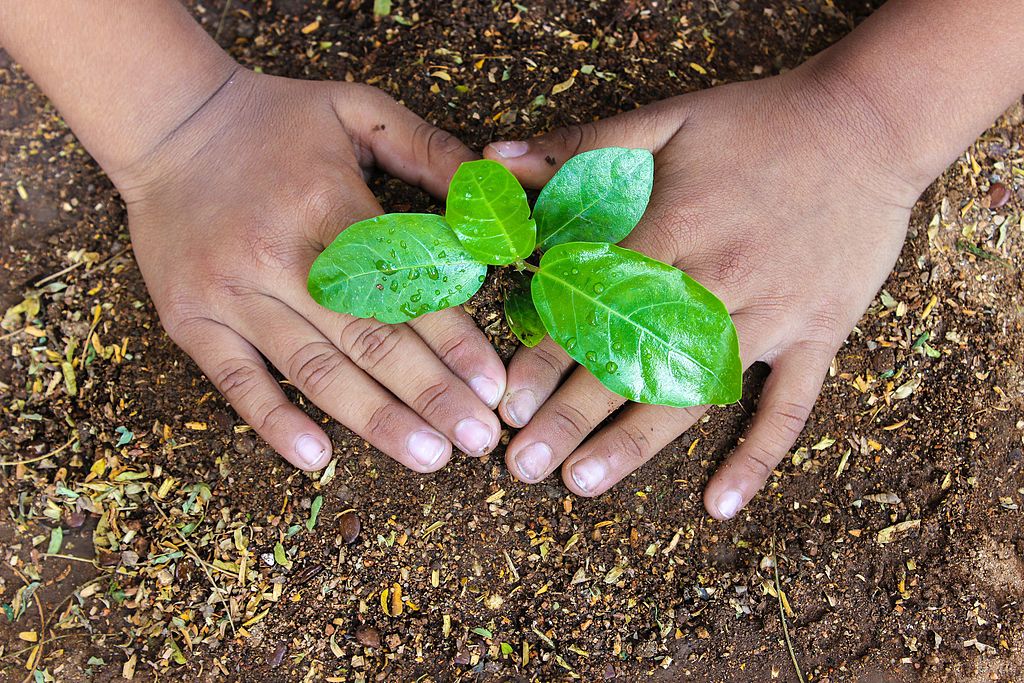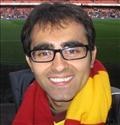
Vaibhav Bhardwaj talks about his career in biotechnology start-ups which aim to massively accelerate treatments for some of the world's most challenging medical issues
Gates Cambridge gives you not just an education at one of the best universities in the world, but also a community that can discuss in depth some of the most critical challenges that humanity is facing and that values expertise.
Vaibhav Bhardwaj
From an early age, Vaibhav Bhardwaj [2012] was taught the value of attention to detail and of using every opportunity to learn more about how the world works. His Biology teacher at secondary school would regularly say to him ‘you cannot commit to memory what you do not understand.’ It’s an approach that has stood him in good stead throughout his academic career and his work in biotechnology start-ups which aim to use scientific research to massively accelerate treatments for some of the world’s most challenging medical issues.
He says Gates Cambridge and his PhD in Plant Sciences was a turning point in his life, although he never thought he would be selected as a Gates Cambridge Scholar. “I had heard of it and suspected that the people who got the scholarship were pretty exceptional,” he says. “I never thought I would get it. I had to read the email several times to make sure I hadn’t misunderstood. It was a huge shock, a very special moment.”
He adds: “The scholarship gives you not just an education at one of the best universities in the world, but also a community that can discuss in depth some of the most critical challenges that humanity is facing and that values expertise. It has transformed my life trajectory.”
Indeed he has worked alongside several Gates Cambridge Scholars since leaving Cambridge.
Early days
Vaibhav’s interest in Biology stems back to his school days. Born in New Delhi, Vaibhav grew up in Harare, Zimbabwe and says his passion for Biology is in great part to his school teacher, Mrs Atkinson. “She helped me appreciate that I needed to dig deep into a subject,” he says. At school, he developed his ability to understand the finer points of problems to near research levels. “That attention to detail and to thinking systematically has stuck with me until today,” he says.
 Vaibhav won funding from the Hindu Community of Harare to follow his brother to the University of Cape Town in 2006 where he studied Biochemistry and Biotechnology. At the time Zimbabwe was in a dire economic crisis and Vaibhav says that, without the funding, he would not have been able to go. He found the transition to university difficult initially and describes a sense of culture shock, coming from Zimbabwe where inflation was very high, where there were shortages of everything to a place where the shops were full of goods and his peers seemed to fit in more than he did.
Vaibhav won funding from the Hindu Community of Harare to follow his brother to the University of Cape Town in 2006 where he studied Biochemistry and Biotechnology. At the time Zimbabwe was in a dire economic crisis and Vaibhav says that, without the funding, he would not have been able to go. He found the transition to university difficult initially and describes a sense of culture shock, coming from Zimbabwe where inflation was very high, where there were shortages of everything to a place where the shops were full of goods and his peers seemed to fit in more than he did.
He didn’t do well in his first assessment. However, after that “wake-up call”, he found friends who shared his interests and developed a community of like-minded people with whom he could share ideas. Most of all, though, he realised that there was no substitute for hard work and that helped focus him and his grades soon improved. In his second year, after petitioning the Biology coordinator, he started teaching other students which he really enjoyed. He says he was driven in part by his mother’s example as a teacher and by Mrs Atkinson telling him that the way to understand something is to teach it. By his third year, he was tutoring second-and third-year courses and some of his own peers. “It really made me appreciate the ability to transfer knowledge and help others to learn,” he says. Vaibhav went on to supervise students at Trinity College, Churchill and Peterhouse during his PhD at Cambridge.
Circadian rhythms in plants
Next, Vaibhav did a two-year master’s in Molecular Biology at the University of Cape Town, funded by the university. There he studied circadian rhythms in plants and how they contribute to plants’ defence responses. “The research was focused on whether the time of day affects plants’ responses to bacterial infections,” he says. “Plants rely on changes between night and day to regulate their metabolism, especially how they manage water.”
The research found that plants’ defence responses were strongest in the early morning and weakest late at night. The hypothesis was that dawn is the time when maximum photosynthesis takes place and the stomata of the plant are fully open to enable gaseous exchange. That enables bacteria to enter the plant so, to compensate, the plant’s defence systems are at the highest level of alert.
Cambridge
Vaibhav then applied to Cambridge for a PhD, receiving funding from Gates Cambridge to research symbiosis in algae and bacteria. The PhD was in the Department of Plant Sciences under the supervision of Professor Alison Smith. He says: “Symbiosis and specifically mutualisms are an interesting area in biology and a cornerstone to understanding how organisms have evolved and more broadly, how ecosystems develop”.
During the PhD, Vaibhav had the opportunity to learn critical molecular biology skills such as synthetic Biology to engineer pieces of DNA to express specific proteins and regulate how those proteins are switched on and off. Using a molecular biology approach to understanding mutualism enabled Vaibhav to learn a broad repertoire of critical skills. Additionally, co-supervisors such as Dr Uta Paszkowski and Dr Sebastian Schornack who Vaibhav got to meet through the Plant Endosymbiosis meetings, played an important role in enhancing his education at Cambridge while providing a collegiate atmosphere in which the subtleties of symbiosis could be discussed in a lively and scientifically rigorous manner.
Over the course of his PhD, Vaibhav had to continually redefine his hypotheses and learnt not just how much more there is to understand to move his field forward but how important scientific rigour is in the development of new knowledge. It gave him a set of tools that he still uses today. “It taught me to be more humble and to value knowledge and understand the difficulty of calling something out as 100% true or false,” he says.
During his PhD, Vaibhav says the Gates Cambridge scholarship provided enormous support. “Gates Cambridge is attempting to do something remarkable: bringing together scholars of any age and from any country to study the research of their choice. It’s an enormous undertaking that the scholarship has performed with care and concern for every one of our community.”
After his PhD, Vaibhav has entered the rapidly growing field of Computational Biology, working in a Cambridge-based start-up that seeks to address some critical challenges in genomics.
“Cambridge is the home of Genetics. Since the 1950s when the structure of DNA was discovered, Cambridge has been at the centre of a revolution in our understanding of life as we know it,” says Vaibhav. “The chance to play a small part in how genomics medicine expands and hopefully benefits one and all is exciting and daunting. I am excited about our work and the chance to work in a more translational space where ideas move quickly from a mere thought into a product that is being used by a company, hospital or research group.”
*Picture credit: Robbieross123 and Wikimedia commons.












